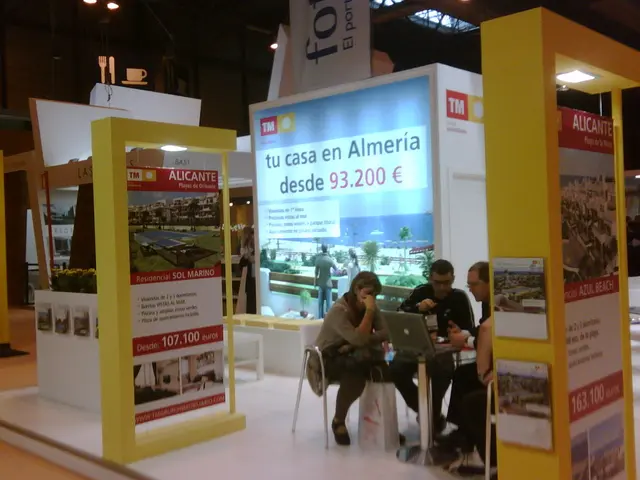Enhancing Electric Vehicle Infrastructure: Canada to Deploy Over 850 Charging Stations with a $18 Million Investment
Canada is taking bold steps towards becoming an energy superpower, as the government has committed over $25 million to support 33 projects focused on expanding electric vehicle (EV) charging infrastructure, decarbonizing freight transportation, and advancing innovative technologies for medium- and heavy-duty trucks [1][4].
The largest share, about $9.7 million, comes from Natural Resources Canada's Zero Emission Vehicle Infrastructure Program (ZEVIP). This funding will deploy over 850 new EV chargers nationwide, primarily in Quebec. The chargers include a mix of Level 2 and DC fast chargers installed in public spaces, workplaces, multi-unit residential buildings, and highways [1][4][5].
Propulsion Québec, for instance, received $3 million to install up to 320 Level 2 chargers across Quebec, with a broader goal of 1,000 Level 2 chargers in total. Les Pétroles R.L. Inc. is installing 62 chargers (28 Level 2 and 34 fast chargers) across Quebec [1][4][5]. Specialized chargers are also being installed, such as IKEA's Level 3 chargers for heavy-duty trucks in Beauharnois and ambulance fleet chargers at the University Hospital of Montreal.
Another $8 million is allocated via the Energy Innovation Program (EIP) for six projects targeting medium- and heavy-duty vehicle sectors. These efforts aim to improve battery performance, develop vehicle-to-grid charging, and optimize charging in challenging conditions like remote or northern climates [1][4].
Examples include Gamotech Inc.'s development of mobile auxiliary energy storage for trucks to power construction and municipal equipment. Calogy Solutions' work on high-voltage lithium-ion battery prototypes for commercial vehicles is another project under this funding [1][4].
Approximately $7.9 million through NRCan’s Green Freight Program supports four projects that modernize fleets in transportation, construction, and public works, reducing emissions and fuel costs while enhancing competitiveness [4].
The funding will add more than 850 EV chargers nationwide, with many in Quebec. Claude Guay, Parliamentary Secretary to the Minister of Energy and Natural Resources, made the announcement on Wednesday, stating that the installation of these chargers will be accelerated [1].
Canada's commitment to strengthening zero-emission transportation infrastructure and innovation, particularly for medium- and heavy-duty transport vehicles, reflects the country's dedication to decarbonizing freight and commercial sectors [1][3][4]. However, as of now, Canada has not reintroduced a federal EV rebate program, which was suspended earlier this year.
Science and technology are integral components of Canada's ambitious plan to improve its electric vehicle infrastructure and decarbonize freight transportation. Over $8 million from the Energy Innovation Program (EIP) is funding six projects that focus on enhancing battery performance and developing vehicle-to-grid charging technology, while the Green Freight Program contributes approximately $7.9 million to modernize fleets in various sectors, utilizing innovative technologies.




